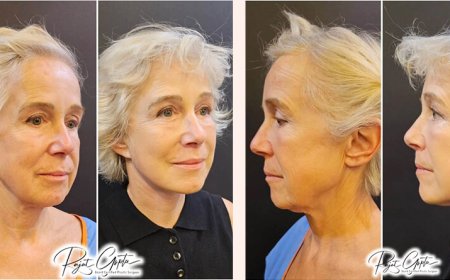Understanding STA Respite and Positive Behavioural Support
When it comes to delivering quality disability support services, two concepts have become increasingly essential STA Respite and Positive Behavioural Support (PBS). Both play a crucial role in supporting individuals with disabilities, promoting well-being, and empowering participants to live more fulfilling lives. STA Respite offers short-term accommodation with tailored care, while Positive Behavioural Support uses person-centered strategies to address challenging behaviours. When integrated, these approaches foster greater independence, dignity, and inclusion.
In this blog, we will explore the core aspects of STA Respite and Positive Behavioural Support, understand their individual benefits, and how combining the two can lead to more effective disability support services.
1. STA Respite
Short-Term Accommodation (STA), commonly referred to as respite care, is a form of temporary support that gives individuals with disabilities a safe, supportive space outside their usual home environment. It also provides relief for families and carers, offering them a break while ensuring the person they care for continues to receive high-quality support.
1.1 The Purpose of STA Respite
STA Respite serves both functional and emotional needs:
-
Relieves carer fatigue by offering primary caregivers a necessary break.
-
Supports routine and independence for participants by allowing them to experience a different environment.
-
Provides access to community activities, social interaction, and new experiences.
STA Respite is not just a break; it's a carefully designed support system where individuals continue to thrive in a nurturing environment.
1.2 Tailored Support in STA
STA Respite is flexible and can be designed around the participants individual goals and needs. This includes:
-
Assistance with daily living activities, such as bathing, dressing, and meals.
-
Skill development opportunities to promote autonomy.
-
Social activities and recreation, helping individuals build friendships and confidence.
Whether its a weekend or a couple of weeks, STA Respite is a structured experience with therapeutic value.
1.3 Who Can Benefit from STA Respite?
STA Respite is beneficial for a wide range of individuals:
-
People with intellectual or developmental disabilities.
-
Participants needing support during transition periods (such as hospital discharge).
-
Individuals with high support needs or behaviours of concern.
It is especially useful for building resilience, fostering independence, and improving mental health.
2. Positive Behavioural Support (PBS)
Positive Behavioural Support (PBS) is a proactive and evidence-based approach used to understand and support individuals who may display behaviours of concern. Rather than focusing on punishment or control, PBS emphasizes improving the persons quality of life by understanding the reasons behind behaviours.
2.1 Foundations of Positive Behavioural Support
PBS is grounded in several key principles:
-
Functional Behaviour Assessment (FBA): Understanding why a behaviour occurs by identifying its triggers and outcomes.
-
Person-centered planning: Involving the individual in developing support strategies based on their goals and preferences.
-
Skill-building: Teaching alternative, more appropriate behaviours that meet the same needs as the challenging ones.
PBS looks beyond the behaviour to uncover unmet needs or environmental factors that may contribute to the issue.
2.2 Benefits of PBS in Disability Support
PBS offers long-term benefits for both individuals and support teams:
-
Reduces the frequency and intensity of behaviours of concern.
-
Improves communication skills and emotional regulation.
-
Enhances social engagement and participation.
PBS fosters dignity and respect, recognizing that every behaviour serves a purpose and that everyone has the right to be supported without judgment.
2.3 Implementing PBS Successfully
Successful PBS strategies involve:
-
Comprehensive training for support workers and carers.
-
Ongoing data collection and analysis to evaluate behaviour patterns.
-
Collaborative teamwork among therapists, carers, and the individual.
By creating predictable and supportive environments, PBS promotes meaningful behavioural change.
3. The Power of Integration
When STA Respite is combined with Positive Behavioural Support, the outcome is more than just temporary care it becomes a transformative experience for the individual. Integrating the two creates a framework that prioritizes personal growth, emotional well-being, and behavioural development.
3.1 Using STA as a Platform for Behavioural Support
STA Respite can serve as an ideal setting for PBS implementation:
-
New environment for observation allows support staff to monitor behaviours in different contexts.
-
Controlled and supportive space for testing behavioural strategies without daily stressors.
-
Opportunities for skill generalization, helping individuals apply learned behaviours in varied situations.
This structured, goal-oriented environment makes STA Respite a valuable component of any behavioural support plan.
3.2 Building Consistency Across Settings
A major challenge in behavioural support is maintaining consistency. When PBS is introduced in both the home and STA environments:
-
It ensures continuity of care across different support workers and settings.
-
Participants receive consistent cues and feedback, reinforcing positive behaviour.
-
Support plans can be adapted based on insights gained during the respite stay.
Collaboration between carers, behaviour specialists, and STA providers ensures that all environments are aligned with the individuals goals.
3.3 Empowering Participants and Families
By combining STA Respite with PBS:
-
Participants experience structured breaks that contribute to behavioural progress and personal development.
-
Families gain insight and peace of mind, knowing their loved ones are supported by evidence-based strategies.
-
Staff are empowered with tools and training to respond effectively and compassionately.
This holistic approach fosters a positive cycle of support, learning, and growth.
Conclusion
In todays evolving disability support landscape, STA Respite and Positive Behavioural Support are more than just services they are powerful tools that, when used together, can change lives.
STA Respite offers more than a temporary solution it provides relief, growth, and experiences. On the other hand, Positive Behavioural Support offers a compassionate way to understand behaviours, address challenges, and foster development. Together, they create an enriched support framework that empowers individuals to live with dignity, independence, and purpose.
By recognizing the importance of tailored short-term accommodation and behavioural strategies, caregivers and professionals can provide comprehensive support that makes a lasting impact not just during respite stays but in everyday life. Families are supported, individuals are empowered, and outcomes are significantly improved.










































